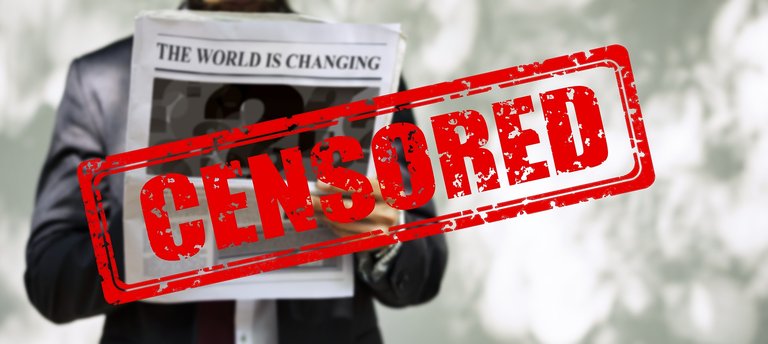
Image by Gerd Altmann from Pixabay
In an age where information flows ceaselessly across the globe, the principles of free speech have never been more vital. Yet, paradoxically, we find ourselves at a juncture where the call for censorship seems to grow louder, often couched in the guise of protecting societal values or promoting harmony. It is essential to recognise that only the dishonest, morally weak, and politically corrupt fear the unbridled exchange of ideas. These groups are often the most vociferous proponents of draconian censorship, seeking to stifle discourse that challenges their narratives and exposes their flaws.
The Nature of Fear
To understand why censorship is so corrosive, we must first examine the nature of fear. Free speech invites scrutiny, debate, and dissent, which foster societal growth and understanding. However, such scrutiny threatens individuals and institutions operating under a cloud of dishonesty. When ideas are freely exchanged, the truths that may expose corruption and unethical behaviour come to light. It is these truths that the morally weak wish to bury; they thrive in environments where misinformation reigns and accountability is absent.
The Mechanism of Censorship
Censorship often manifests in various forms: administrative policies that limit free expression, social media algorithms that suppress dissenting voices, and even government actions that criminalise specific ideas. But beneath these mechanisms lies a common thread: the desire to maintain a status quo favouring those in power. The powerful utilise censorship not merely as a tool for suppression but as a means to forge a narrative beneficial to them.
Politically corrupt actors utilise draconian censorship to shield their actions from scrutiny. When legitimate criticism and alternative viewpoints are drowned out, the public is deprived of a complete and nuanced understanding of issues. This manipulation creates an environment ripe for misinformation and ignorance, where the populace is less equipped to hold power accountable.
The Importance of Open Discourse
Promoting open discourse is essential for a healthy society. Debate and discussion challenge prevailing ideas and force all parties to reflect critically on their beliefs. Societies that embrace free speech tend to be more innovative, resilient, and adaptable to change. In contrast, those who succumb to censorship experience stagnation, as dominant ideologies go unchallenged and dissent is silenced.
History is replete with examples where censorship led to catastrophic outcomes. From the authoritarian regimes that have obliterated dissent, risking lives in their quest for total control, to more subtle forms of censorship that emerge within purportedly democratic societies, the suppression of free speech has consistently yielded adverse outcomes. The inability to voice dissent also perpetuates a cycle of apathy, leading citizens to disengage from the political process altogether.
The Call for Resistance
In light of these truths, it becomes imperative for individuals and communities to stand firmly against censorship. Even when it may be uncomfortable or controversial, advocating for free speech is a cornerstone of a vibrant democracy. Education plays a crucial role here; equipping individuals with critical thinking skills fosters the resilience necessary to navigate complex issues, enabling them to engage in constructive debate rather than resorting to suppression.
Resistance against censorship is not merely an act of rebellion but an affirmation of one’s fundamental right to speak freely and question authority. Only by creating an environment where all voices are welcomed can we foster transparency, justice, and, ultimately, a more equitable society.
In our increasingly complex continuous struggle for free speech, those who fear dissenting voices reveal much about their character. The promotion of free speech is not only a safeguard against tyranny but also a catalyst for moral integrity and political accountability. As we confront the rising tide of censorship, we must remember that true strength lies in allowing discourse to flourish—without fear, without hesitation, and the constraints of dishonesty or corruption. We can aspire to build a more enlightened and resilient society through this acceptance of diverse voices.